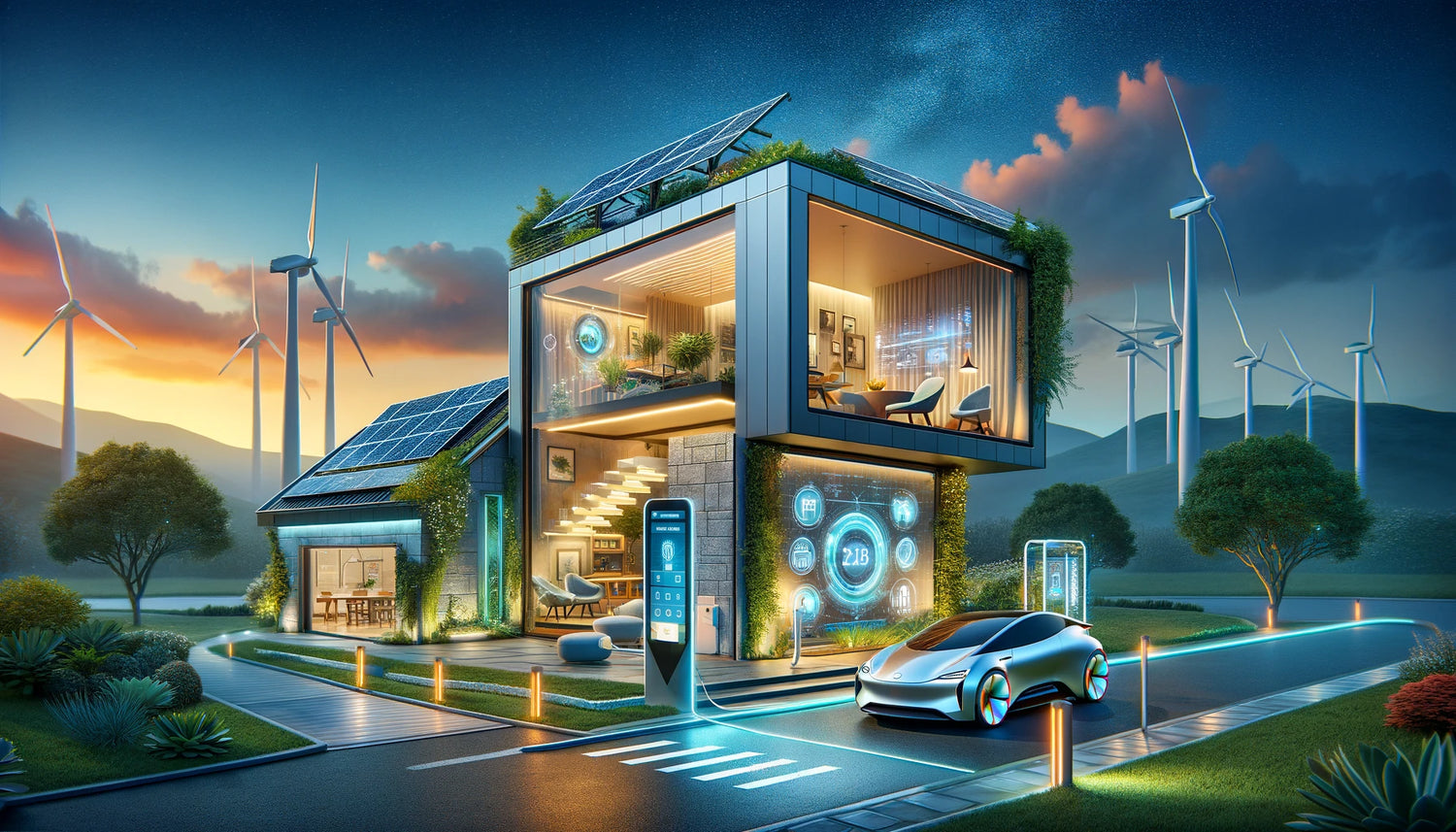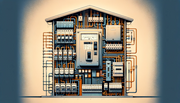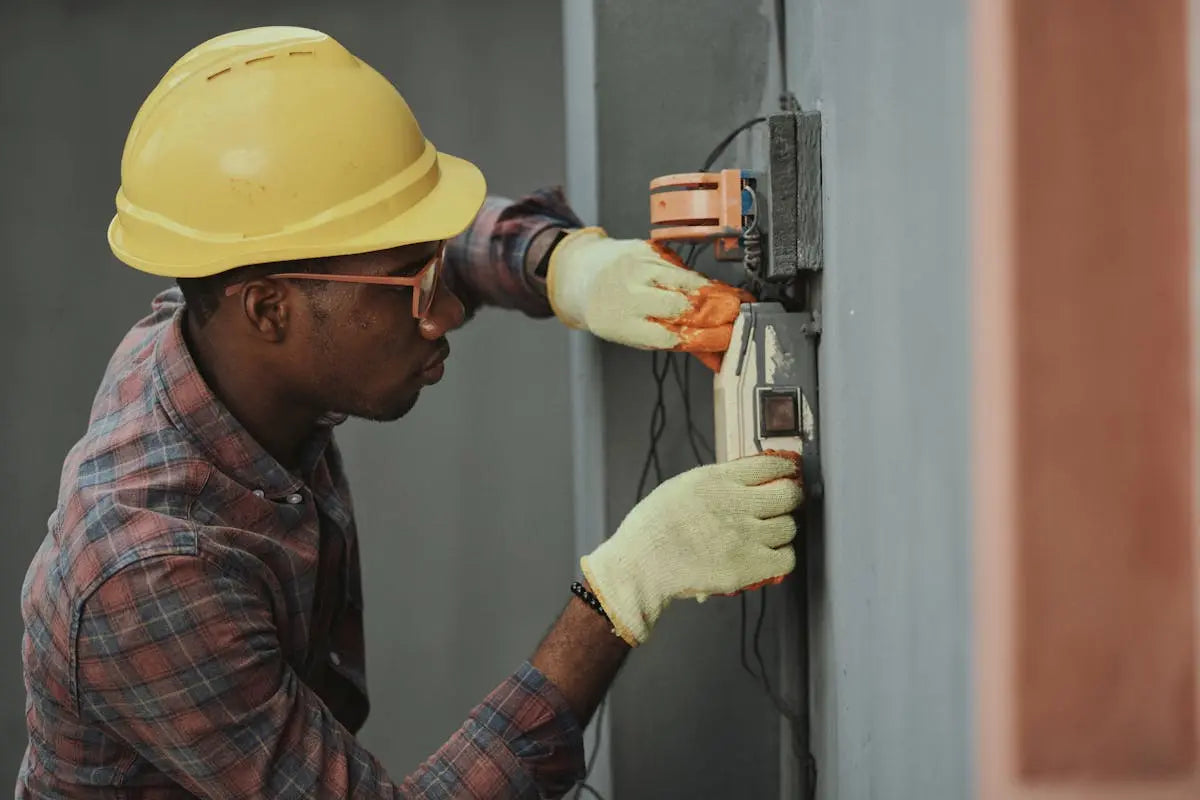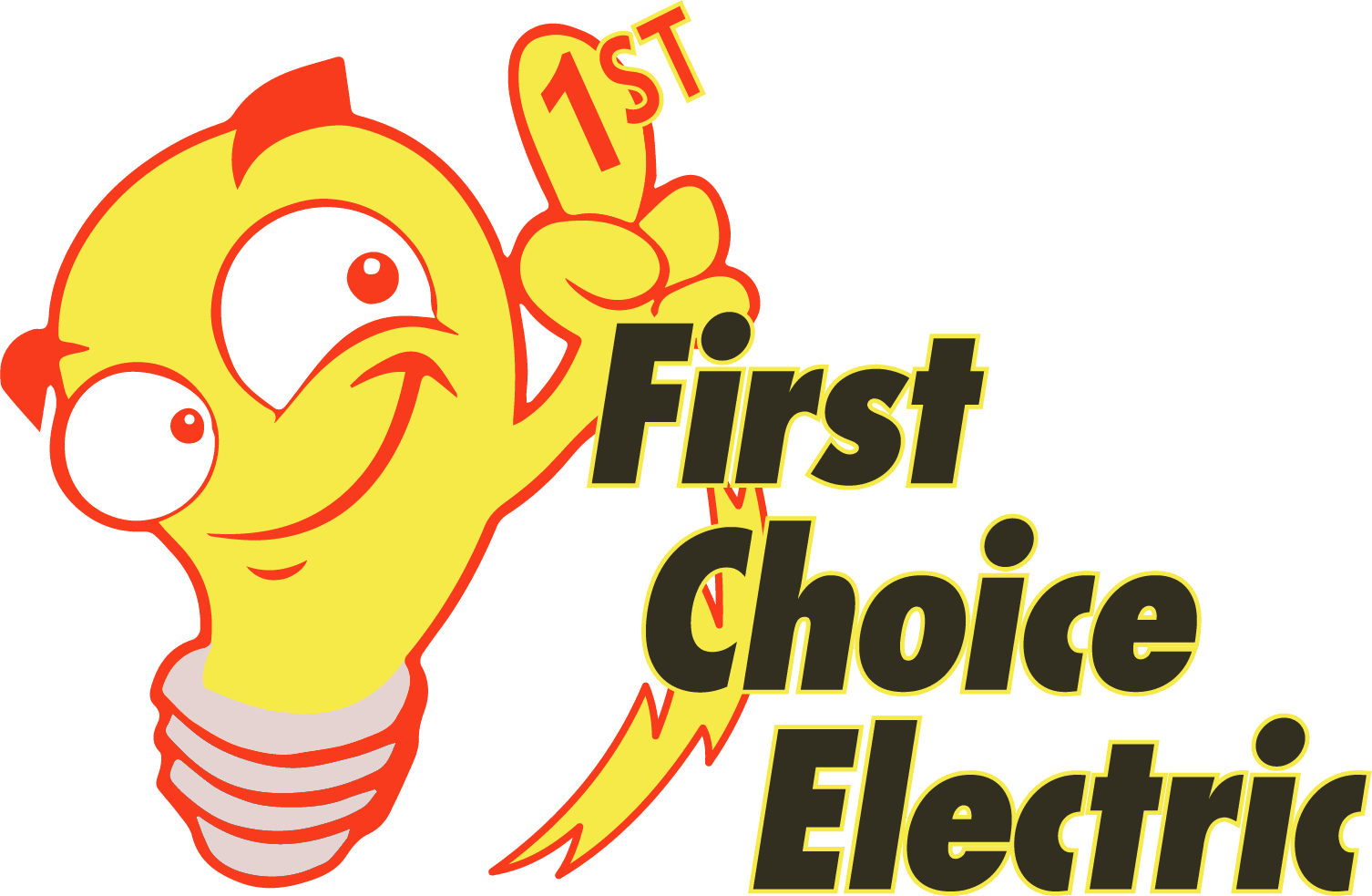Embracing the Future: How Advancements in the Electrical Trade Benefit Homeowners
Introduction
The electrical trade, a cornerstone of modern infrastructure, has undergone a remarkable evolution over the decades, driven by relentless innovation and a growing emphasis on sustainability and efficiency. As we stand on the brink of a new era, it's crucial for homeowners to look ahead and understand the transformative changes that are reshaping this vital industry. The future of the electrical trade isn't just a matter of professional concern for electricians and industry insiders; it's a topic of paramount importance for anyone who owns a home or plans to. This blog delves into the emerging trends, technologies, and regulatory landscapes that are defining the future of the electrical trade, offering homeowners a comprehensive guide to navigating the changes that lie ahead. By exploring what's on the horizon, from smart home automation to renewable energy integration, we aim to illuminate how these advancements can enhance home safety, efficiency, and sustainability, ultimately enriching the quality of life for homeowners everywhere.
Technological Advancements in the Electrical Trade
The electrical trade is at the forefront of technological innovation, with advancements poised to redefine the way homes are powered, protected, and managed. These innovations not only promise to improve the quality of life for homeowners but also reflect a broader shift towards sustainability and efficiency in the face of global environmental challenges.
Smart Home Technologies
The concept of the "smart home" has transitioned from a futuristic vision to a tangible reality, thanks to rapid advancements in IoT (Internet of Things) devices and home automation systems. These technologies offer homeowners unprecedented control over their living environments, from lighting and heating to security and entertainment systems, all operable from a smartphone or voice-activated device. The integration of smart meters and energy management systems further allows for real-time monitoring and optimization of energy usage, paving the way for significant cost savings and a reduced carbon footprint.
Renewable Energy Systems
Renewable energy sources, such as solar and wind power, are becoming increasingly accessible to homeowners, driven by advancements in technology and supportive policy frameworks. Solar panels, in particular, have seen significant improvements in efficiency and cost-effectiveness, making them an attractive option for residential energy production. Wind turbines, while less common in urban settings, offer substantial potential for properties in suitable locations. These systems not only contribute to a more sustainable energy grid but also provide homeowners with the opportunity to achieve energy independence and stability against fluctuating energy prices.
Battery Storage Solutions
The rise of home battery storage systems, exemplified by products like the Tesla Powerwall, marks a significant leap forward in residential energy management. These systems store excess energy generated by solar panels or the grid during off-peak hours, making it available for use during peak demand times or power outages. This technology enhances the feasibility and reliability of renewable energy systems, ensuring a consistent power supply and further reducing reliance on traditional energy sources.
Electric Vehicle (EV) Charging Infrastructure
As electric vehicles become more prevalent, the demand for home EV charging solutions is growing. Modern electrical tradespeople are increasingly skilled in installing and maintaining home charging stations, integrating them seamlessly with existing electrical systems and renewable energy sources. This trend not only supports the transition to cleaner transportation options but also adds convenience and value to properties equipped with these facilities.
Regulatory Changes and Safety Standards
As the electrical trade evolves, so too do the regulations and safety standards that govern it. These changes are crucial for ensuring that the rapid pace of innovation does not compromise safety and efficiency. For homeowners, staying informed about these regulatory shifts is essential for maintaining compliance and safeguarding their homes against electrical hazards.
International and National Electrical Codes Updates
Electrical codes serve as the backbone of electrical safety, providing guidelines that dictate the design, installation, and inspection of electrical systems. These codes are periodically reviewed and updated to reflect new technologies, materials, and safety research. Recent updates have increasingly focused on accommodating the integration of renewable energy systems, smart technologies, and the infrastructure required for electric vehicles, ensuring that these new developments are safely implemented into residential settings.
For homeowners, these updates can have practical implications, especially during renovations or when installing new electrical systems. Compliance with the latest codes not only ensures safety but can also enhance the efficiency and reliability of home electrical systems. It's important for homeowners to work with licensed and knowledgeable electricians who are up-to-date with these regulations to ensure that any electrical work meets current standards.
The Impact of Regulations on Home Electrical Systems
Regulatory changes can directly impact how homeowners are allowed to use and modify their electrical systems. For instance, certain jurisdictions may have specific requirements for the installation of solar panels or the integration of battery storage systems, affecting how homeowners can adopt these technologies. Additionally, regulations regarding the placement and specifications of EV charging stations can influence homeowners' decisions regarding electric vehicle ownership.
Importance of Compliance for Safety and Efficiency
Compliance with electrical codes and standards is not just a legal requirement; it's a critical component of home safety and efficiency. Properly installed and maintained electrical systems reduce the risk of electrical fires, shocks, and other hazards. Moreover, compliance can also impact insurance policies and property values, as homes that adhere to the latest standards are often viewed more favorably by insurers and potential buyers.
For homeowners, this underscores the importance of engaging with qualified professionals for any electrical work and staying informed about the regulations that apply to their properties. Doing so not only ensures the safety and functionality of their electrical systems but also protects their investment in their homes.
The Role of Electricians in the Modern Home
The rapid pace of technological innovation and the shift towards more sustainable and efficient energy solutions have significantly expanded the role of electricians. Today's electricians are not just responsible for wiring and repairs; they are key players in integrating advanced technologies into our homes, ensuring safety, efficiency, and compliance with evolving standards.
Evolving Skill Sets for Future Electricians
The modern electrician must possess a broad and evolving skill set that goes beyond traditional electrical work. Proficiency in smart home technology, renewable energy systems, and energy storage solutions is becoming increasingly important. Electricians now need to be familiar with IoT devices, home automation systems, solar panel installation, and the setup of home battery storage units. The ability to integrate these systems into existing electrical infrastructures while ensuring they meet current codes and standards is a crucial skill in today's electrical trade.
Furthermore, as electric vehicles become more common, electricians are increasingly called upon to install and maintain EV charging stations in residential settings. This requires a deep understanding of the electrical demands of these vehicles and the infrastructure needed to support them.
The Importance of Continuous Learning and Certification
Given the rapid advancements in technology and changes in regulations, continuous learning and professional development are paramount for electricians. Many trade organizations, educational institutions, and industry groups offer specialized training and certification programs in areas like renewable energy, smart home technologies, and energy efficiency. These programs ensure that electricians remain at the forefront of the industry, equipped with the knowledge and skills to meet the evolving demands of their profession.
For homeowners, hiring electricians who are committed to ongoing education and hold relevant certifications is a key factor in ensuring that their electrical systems are installed and maintained to the highest standards. It provides peace of mind that their homes are safe, efficient, and compliant with the latest codes and regulations.
How Homeowners Can Benefit from Professional Electrical Services
Engaging with professional electricians who are knowledgeable about the latest technologies and standards has several benefits for homeowners. First and foremost, it ensures the safety and reliability of their home's electrical system. Professional electricians can also provide valuable advice on energy efficiency, helping homeowners reduce their energy consumption and save on utility bills.
Moreover, as homes become increasingly connected and reliant on advanced technologies, electricians can play a crucial role in integrating these systems seamlessly and optimally. Whether it's setting up a smart home system, installing solar panels, or ensuring that a home is ready for an electric vehicle, professional electricians are indispensable partners in modernizing and future-proofing our homes.
Continuing our exploration of the future of the electrical trade and its relevance to homeowners, let's delve into the critical aspects of energy efficiency and sustainability. These elements are not only pivotal for environmental conservation but also offer substantial benefits in terms of cost savings and improved home value for homeowners.
Energy Efficiency and Sustainability
The global emphasis on sustainability and reducing carbon footprints has significantly influenced the electrical trade, driving innovations and practices that promote energy efficiency in homes. This shift not only aligns with environmental goals but also offers economic advantages for homeowners through reduced energy consumption and enhanced living conditions.
The Push Towards Energy-Efficient Appliances and Systems
Advancements in technology have led to the development of appliances and systems that consume significantly less energy without compromising performance. From LED lighting and high-efficiency HVAC systems to energy-star-rated appliances, these innovations are becoming standard in modern homes. Electricians play a crucial role in advising homeowners on the best energy-efficient options for their needs and ensuring these systems are correctly installed and optimized for peak performance.
Home Automation and Its Role in Energy Conservation
Home automation systems have become a cornerstone of energy conservation strategies in residential settings. These systems allow for the centralized control of heating, cooling, lighting, and other electrical systems, enabling homeowners to optimize their energy use based on real-time needs. For instance, smart thermostats can adjust the temperature based on occupancy patterns, while automated lighting can dim or turn off lights in unoccupied rooms. Electricians with expertise in smart home technologies are essential for integrating these systems, ensuring they work seamlessly together to maximize energy savings.
How Sustainable Practices Can Lead to Cost Savings for Homeowners
Sustainable practices in the electrical trade not only contribute to environmental conservation but also translate to direct cost savings for homeowners. Reduced energy consumption lowers utility bills, and the installation of renewable energy sources, like solar panels, can provide long-term savings and even generate income through net metering schemes where excess power is sold back to the grid. Furthermore, homes with energy-efficient systems and sustainable technologies often enjoy higher market values and appeal to a growing segment of environmentally conscious buyers.
Electricians, with their deep understanding of these systems and technologies, are invaluable advisors for homeowners looking to make their homes more sustainable and efficient. They can provide insights into the most cost-effective measures, from simple upgrades like switching to LED lighting to more significant investments such as solar panel installations.
As we approach the conclusion of our exploration into the future of the electrical trade and its relevance to homeowners, it's essential to cast our gaze forward to the emerging trends and innovations that are set to redefine residential electrical systems. These advancements promise not only to enhance the functionality and efficiency of our homes but also to revolutionize the way we interact with our living spaces.
Future Trends and Innovations
The electrical trade is on the cusp of a new wave of innovations, driven by advancements in technology and a growing emphasis on sustainability. These developments are poised to offer homeowners unprecedented levels of control, efficiency, and convenience, reshaping our expectations of what is possible in our homes.
Emerging Technologies in the Electrical Trade
One of the most exciting areas of innovation is the integration of AI and machine learning with home electrical systems. These technologies can analyze energy usage patterns, predict future needs, and automatically adjust systems to optimize efficiency and comfort. Imagine your home intelligently managing lighting, heating, and cooling without any input from you, reducing energy consumption and ensuring optimal comfort at all times.
Another significant trend is the advancement of wireless power transmission. While still in the early stages, this technology has the potential to eliminate the need for cords and cables, allowing for more flexible and aesthetically pleasing home designs. This could revolutionize the way we power devices and appliances, making homes safer and more adaptable.
Predictions for the Future of Home Electrical Systems
As we look to the future, it's clear that home electrical systems will become even more interconnected and intelligent. The concept of the "Internet of Energy" is emerging, where all energy-producing and -consuming devices in the home are connected to optimize energy flow and usage. This will enable homes to not only be more energy-efficient but also to play an active role in the broader energy grid, contributing surplus energy and helping to stabilize supply and demand.
Additionally, the push towards decentralization of energy production, with homes generating their own power through solar panels or other renewable sources, will continue to grow. This shift will require advanced electrical systems capable of managing these energy flows, storing excess energy, and even selling it back to the grid, further blurring the lines between consumers and producers of energy.
The Potential Impact on Homeowners and the Way They Live
These innovations have profound implications for homeowners. They promise to make homes safer, more comfortable, and more adaptable to our needs while reducing environmental impact and energy costs. The role of the homeowner is also set to evolve, from passive consumer to active participant in the energy ecosystem, managing not just consumption but also production and storage of energy.
Moreover, these changes will democratize access to clean energy, making sustainable living not just an ideal but a practical, accessible reality for a broader segment of the population. As these technologies become more mainstream, homeowners will have more opportunities than ever to customize their living environments to their preferences, needs, and values.










